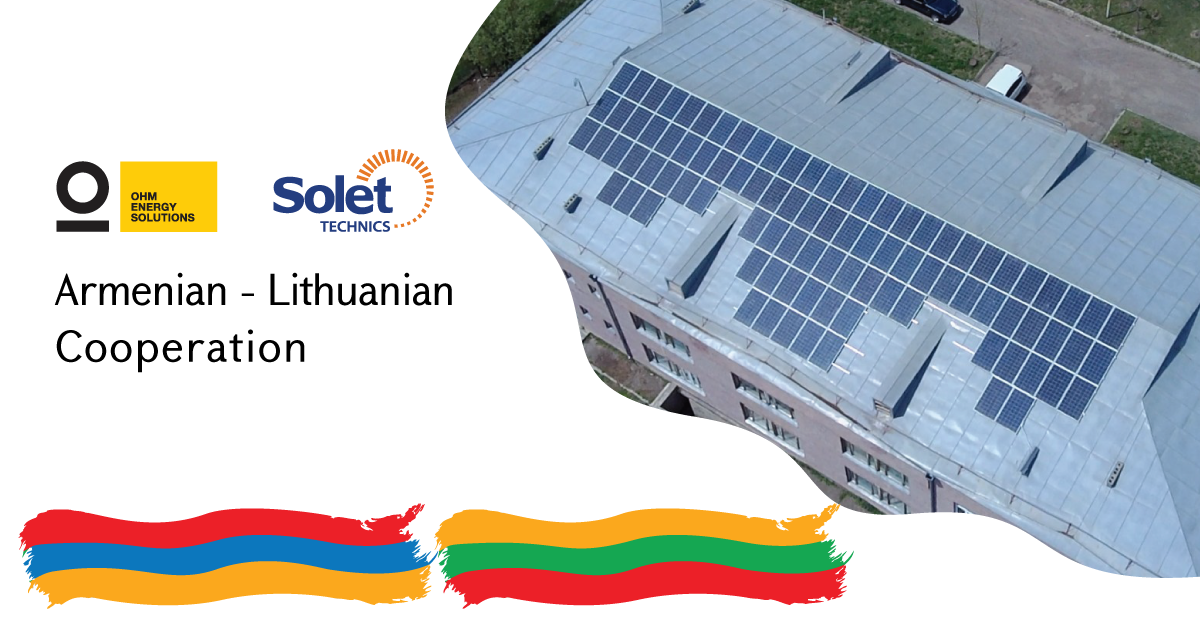Lithuanian solar power plant to produce electricity in Armenia as well. Lithuanian solar energy company Solet Technics together with a partner company The OHM Energy is starting power plant installation works. The electricity generated by the 115- kWp solar power plant will be used by eight public institutions located in Armenia: schools, children and youth centres, and a museum.
The project is being funded by the Climate Change Programme, which is administered by the Environmental Projects Management Agency (EPMA). Almost a third of the funds – over EUR 40,000 – are being provided by Solet Technics and its partners.
According to Solet Technics CEO Andrius Karazinas, it is estimated that the solar power plant will produce approximately 163,000 kWh per year. This will ensure almost 86 per cent of the electricity currently being consumed at these establishments.
“As of now, the schools, museum, and children and youth centres are using electricity from the power grid, as well as natural gas and diesel for heating. The solar power plant will help them meet their educational and community development goals, and will also inevitably contribute to preservation of the environment and improvement of the quality of life. We believe that the installation of this power plant will stimulate the process of introducing renewable energy sources throughout the country,” says Mr Karazinas.
According to the CEO, project implementation works started in late February of this year, once the contract was signed with the EPMA. Organisational work and procurement took longer than planned due to the pandemic restrictions, but the power plant is finally ready for installation and all the necessary equipment is currently being transported to Armenia.
“Installation of the solar power plant is scheduled for late October-November, but with COVID-19, there is always a chance of it being postponed. Hopefully we’ll manage to avoid that. We plan to complete all of the work and the procedures for arranging the necessary documents in February of next year,” says Mr Karazinas.
